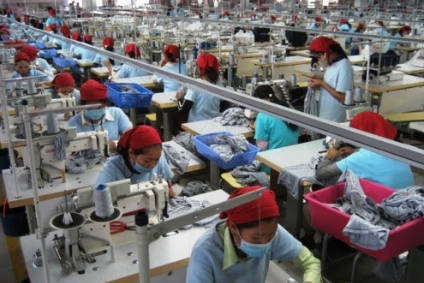
A group of multi-stakeholder initiatives (MSIs) has worked together to develop the ‘Common Framework for Responsible Purchasing Practices’ (CFRPP), as an aligned reference document for the garment industry.
This group has also established the ‘Learning and Implementation Community’, a peer-learning environment for companies to support practical improvements in purchasing practices.
First unveiled last month, the framework is said to be essential for improving working conditions in textile and garment supply chains.
The Working Group has now finalised the document, after evaluating and incorporating feedback from a wide range of stakeholders. 34 organisations actively contributed with detailed suggestions and proposals. A document has been shared with the updated framework, to summarise the feedback given and how it has been integrated.
The framework groups different aspects of responsible purchasing practices (RPP) into five Principles: integration and reporting, equal partnership, collaborative production planning, fair payment terms and sustainable costing.
Moving forward, the MSI Working Group on Purchasing Practices is mobilising companies committed to taking new actions to improve their purchasing practices. A group of these companies will join the ‘Learning and Implementation Community’ (LIC) for two years from September.

US Tariffs are shifting - will you react or anticipate?
Don’t let policy changes catch you off guard. Stay proactive with real-time data and expert analysis.
By GlobalDataClothing retailers and brands from a wide range of countries including Belgium, Germany, the Netherlands, Norway and the UK, will be involved in a series of online interactive workshops, which will include discussions and problem solving with suppliers on particular topics.
The MSI Working Group is working closely with the Sustainable Terms of Trade Initiative to ensure that suppliers are part of discussions, which remains essential as steps are taken towards a fairer relationship and dialogue between suppliers and buyers. The LIC will be developing resources including guidelines, case studies, tools, and video resources that will be shared more widely so that other companies and stakeholders can benefit from the learning of the community.
The framework recognises and emphasises that the responsibility to respect human rights and environmental standards in textile supply chains cannot be placed solely on suppliers, but that purchasing companies must also take responsibility. Action needs to be taken by purchasing companies to amend their purchasing practices, where these undermine good working conditions.
The framework from the MSI Working Group helps to focus this action by providing a reference of what responsible practices look like and the Learning and Implementation Community will also contribute to this goal by supporting practical action by companies.
Purchasing practices has long been a bone of contention in the apparel industry with the situation believed to have gotten significantly worse since the pandemic hit.



